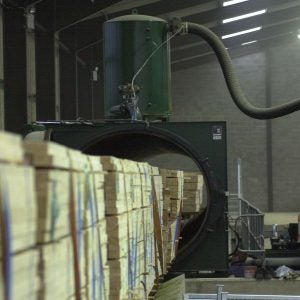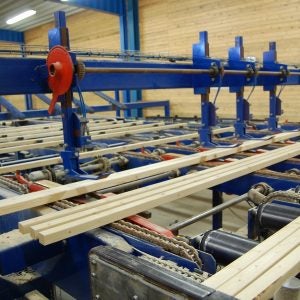The Timber Trade Federation‘s (TTF) scoping study on Indonesian mills has found evidence of both “good” and “bad” practices in operation.
The newly published report, already distributed to 18 UK sponsor companies, also makes key recommendations to help the 13 mills provide legal, and ultimately sustainable timber to the UK.
Sponsors will now be encouraged to visit their supplier companies to formulate individual mill action plans, addressing issues including chain of custody, wood procurement policies, compliance with central government quotas, CE marking and, in the long term, evidence to show their timber comes from a forestry management unit.
Another key action will see the TTF develop a common auditing process of mills, to be conducted by an independent third party.
The TTF’s corporate social responsibility adviser Andy Roby said the study, conducted independently by the Tropical Forests Trust, provided a baseline from which Indonesian companies could improve their performance.
|
“Having done this study, we are not in a position to deny there is an illegal logging problem in Indonesia, but do we boycott or engage with them and give them the right incentives? If we walk away it will just leave them with a less discriminating market” |
|
TTF corporate social responsibility adviser Andy Roby |
He said: “After having done this study we are not in a position to deny there is a problem, but do we boycott or engage with them and give them the right incentives? If we walk away from Indonesia it will just leave them with a less discriminating market.
“We want to carry on buying the material. It’s good stuff but we want our members to examine where they’re getting it from and be more selective.”
Mills that participated in the study are rated according to their performance but not identified in order to protect them.






